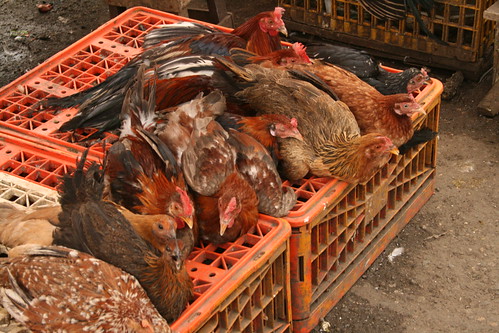 The World Health Organization (WHO) has reported 5 new cases of avian influenza (or “bird flu”) in Egypt, 3 of which were fatal. The cases were scattered across the country, and are all believed to have resulted from exposure to infected poultry. They were confirmed by the Egyptian Central Public Health Laboratory.
The World Health Organization (WHO) has reported 5 new cases of avian influenza (or “bird flu”) in Egypt, 3 of which were fatal. The cases were scattered across the country, and are all believed to have resulted from exposure to infected poultry. They were confirmed by the Egyptian Central Public Health Laboratory.
Avian influenza first emerged as a health threat in 2003. Normally confined to birds, human cases of avian influenza led to fears of a potential pandemic. The concern was the virus would mutate and begin to move from human to human. Previous flu pandemics have killed millions. The 1918 “Spanish Influenza” was particularly deadly, killing an estimated 40-50 million people worldwide.
To date avian influenza has failed to make the leap to pandemic – the latest figures indicate there have been 561 confirmed cases worldwide and 328 deaths since 2003. 300 million birds have been culled to prevent the disease from spreading. Though it has been confined almost exclusively to the developing world till now (in countries where large portions of the population live in close quarters with animals), WHO continues to track avian influenza on its website. On June 3rd a case of infection and recovery was confirmed in Indonesia, on June 10th a fatality in Cambodia.
Egypt was particularly hard hit by bird flu. To date the country has seen 149 cases and 51 deaths. While avian influenza poses little threat to tourists visiting Egypt on holiday, a spike in cases would do nothing for the country’s image. Revenues from tourism were down 46% in the first quarter of 2011 in the wake of the recent revolution.
Expats living in Egypt, meanwhile, may want to keep a close eye on their poultry products – particularly those who shop at their local butcher.
WHO notes that
To date, no epidemiological data suggest that the disease can be transmitted to humans through properly cooked food (even if contaminated with the virus prior to cooking). However, in a few instances, cases have been linked to consumption of dishes made of raw contaminated poultry blood.
